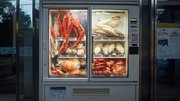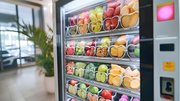Vending
Vancouver caterer expands into vending, prospers during pandemic
Expanding into vending allowed a Vancouver caterer to retain most of his employees after COVID-19 required many of his customer locations to close.
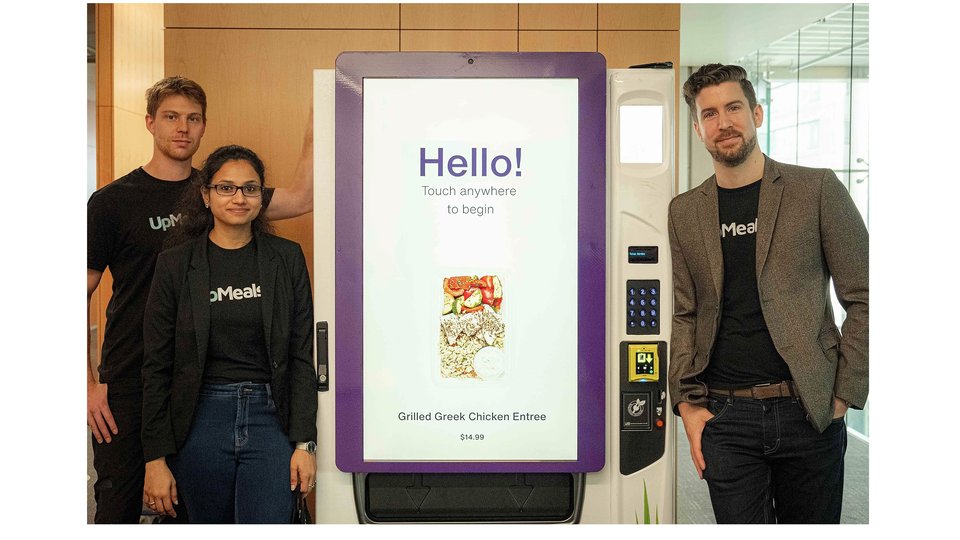
March 10, 2021 by Elliot Maras — Editor, Kiosk Marketplace & Vending Times
Before COVID-19 changed things, Drew Munro, a catering chef who operated an events catering business in Vancouver, British Columbia, began to notice a shift in the workplace for a lot of his corporate customers.
"People weren't working normal 9 to 5 hours anymore," Munro told Vending Times in a recent phone interview. "People were doing flex time, working later, doing a lot of work from home. It was becoming increasingly difficult to feed large groups of people."
He began to investigate how technology would help feed people working more flexible hours and looked into vending solutions.
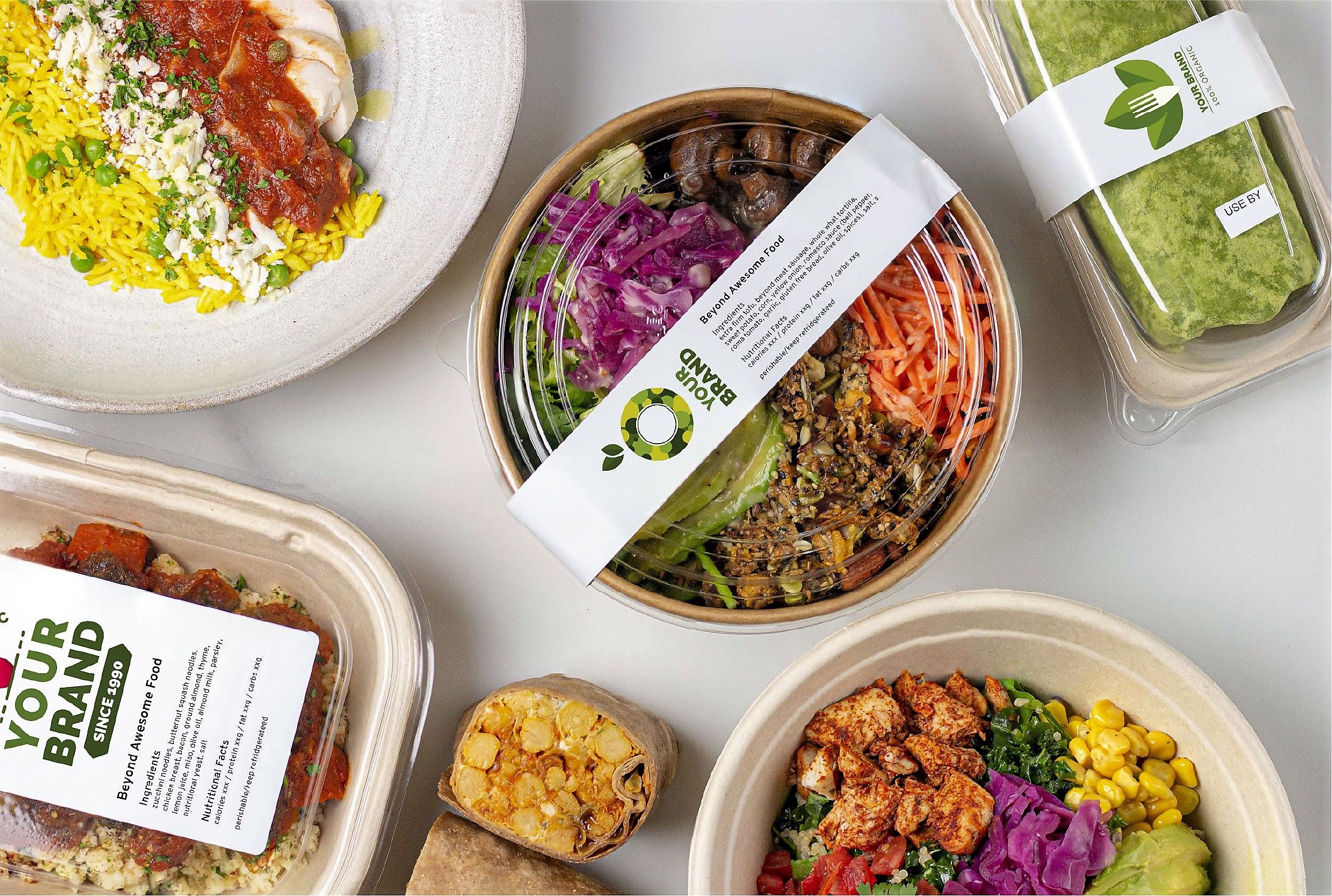 |
| Drew Munro's catering business specializes in home made, healthy fare. |
Fortunately, there was a technology company called SMRT1 Technologies located nearby that was already developing an interactive retrofit module for the vending industry.
"We wanted to serve fresh food from the vending machines," Munro said. He also wanted to provide an interactive, branded customer experience.
"Our team of designers was able to use that (SMRT1) technology to design custom experiences," he said. Munro's team worked with Brad Pommen, president of SMRT1, on the fresh food vending solution that became known as the SmartVending Meal Solution.
They selected a vending machine, the Alpine elevator machine made by U-Select-It Corp. as it was customizable, reliable and offered a good warranty.
A 'smart' vending machine
SMRT1 retrtofits the machine with a touchscreen and software to create a "smart" vending machine that gives access to data analytics to provide reports for both Upmeals and its customer partners. The machine accepts cashless payments only with a Nayax cashless reader.
Upmeals works with SMRT1 to integrate the interface with the machine for the partner customer brand and Upmeals customizes the machine's graphics for the customer.
"By the time it's ready to install for the client, there is a customized, fully wrapped and set up machine ready to go," Munro said. "We plug it in and fill it with fresh food."
"What we're positioning it as is a platform that not only is used to serve healthy food, but also get really valuable insights and data about all your employees, all your customers and how to help them be more productive and have healthier lives," he said.
 |
| Jean Galvani, logistics supervisor, and Byron Mayberry, senior operations manager, stock a machine. |
"Ultimately we want the employees to be able to use that machine for breakfast, for a mid-morning snack, if they want a drink, if they need a good lunch and if they want to even bring something home for dinner to have with their family," he said.
Upmeals also worked with SMRT1 on a stocking and service call interface for fresh food which enables expiration date tracking in real time, identifying products that have surpassed optimal freshness.
A dedicated production facility
Munro operated from his catering facility, Drew's Catering and Events, before expanding the vending food preparation and packaging into its own facility that is HACCP certified to prepare the meals. He is using 3,000 square feet of space in a shared commissary kitchen.
All fresh food items are produced in the company's facility, along with some healthy juices and snacks produced by other local companies but designed for a refrigerated environment.
"What we learned early on is that a (vending) production kitchen is set up very differently from a catering or a restaurant kitchen," he said. The vend operation is producing thousands of meals per week.
"There is a whole different packaging and branding and labeling component that is much more involved than it is in a catering or restaurant environment," he said.
Freshly made meals are delivered weekly to each refrigerated vending machine that can be monitored remotely via an app.
Customers can review all machine activity
"When we onboard a customer, they'll get their own login that's linked to their own machines on their network so they'll be able to view all the machines that are linked to their organization and see the locations and exactly how they're performing," Munro said.
Some customers review the activity on a daily basis.
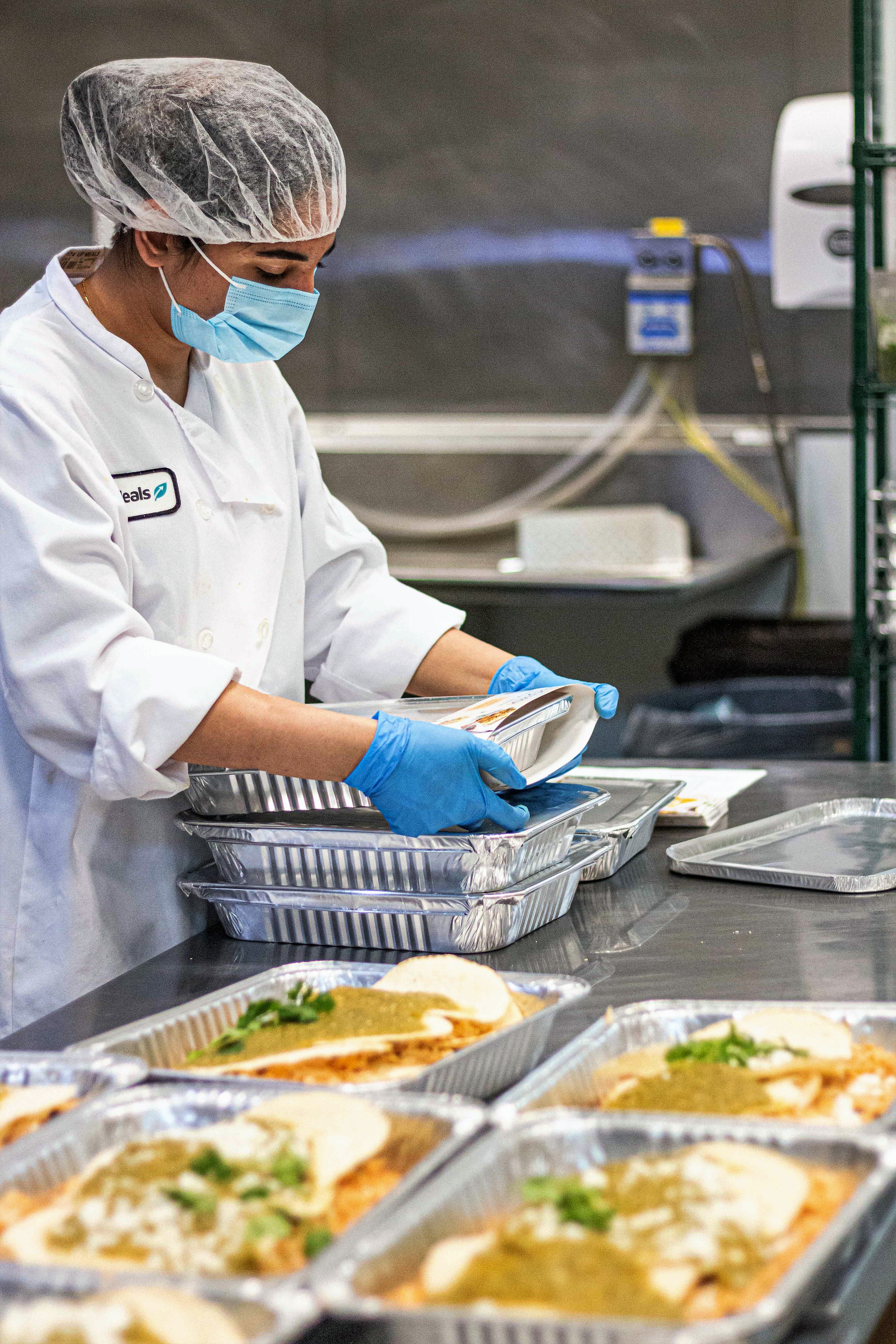 |
| All food for the machines is prepared in a dedicated commissary kitchen. |
The technology also supports instant promotions and stores "best before" dates of each product.
Upmeals menu items are created by chefs and nutritionists which focus on incorporating local and seasonal ingredients. All meals are packaged in compostable or recyclable containers.
Any meals not sold within their freshness time frame can be donated to local charities that distribute meals to the homeless or sold at a discount. Each meal is good for three to four days and the food is replaced by the Upmeals team as it gets close to its expiration date.
Customized location menus
One of the first things a new customer does is complete an interactive questionnaire to enable Upmeals to create a nutritional profile. The company has a database of ingredients and menus to create a customized menu.
"That's a really unique part of what we do versus a lot of other operators," Munro said. "The food that's in the machine is actually customized based on the feedback that we're getting about their customers or their employees."
The menu includes organic cold press juice, energy bars, protein bars, entrée bowls, dinner entrees and salad bowls.
Up to 80% of the food is designed to be eaten in a cold state; Upmeals does not provide microwave ovens for customers, most of which already have microwave ovens.
There is a minimum $3,000 spend amount required per month, Munro said, although he has been flexible about this on account of the pandemic.
"At some point, they're going to be back to a normal operating level, and we want to be there with the technology ready to go when they are ready," he said.
Every product is branded and packaged the same as a retail product, including a nutrition fact panel, a "best before" date and the ingredients.
Upon entering the warehouse, the delivery drivers receive a list of their deliveries and count the products before loading them onto the trucks.
The drivers then go to the machines and download a QR code that unlocks a stocking interface.
Most accounts are serviced two to three times per week. The company operates three routes for regularly scheduled deliveries.
The company was able to use some of its temperature controlled catering vehicles to deliver vend food, in addition to buying some new ones.
Locations control product pricing
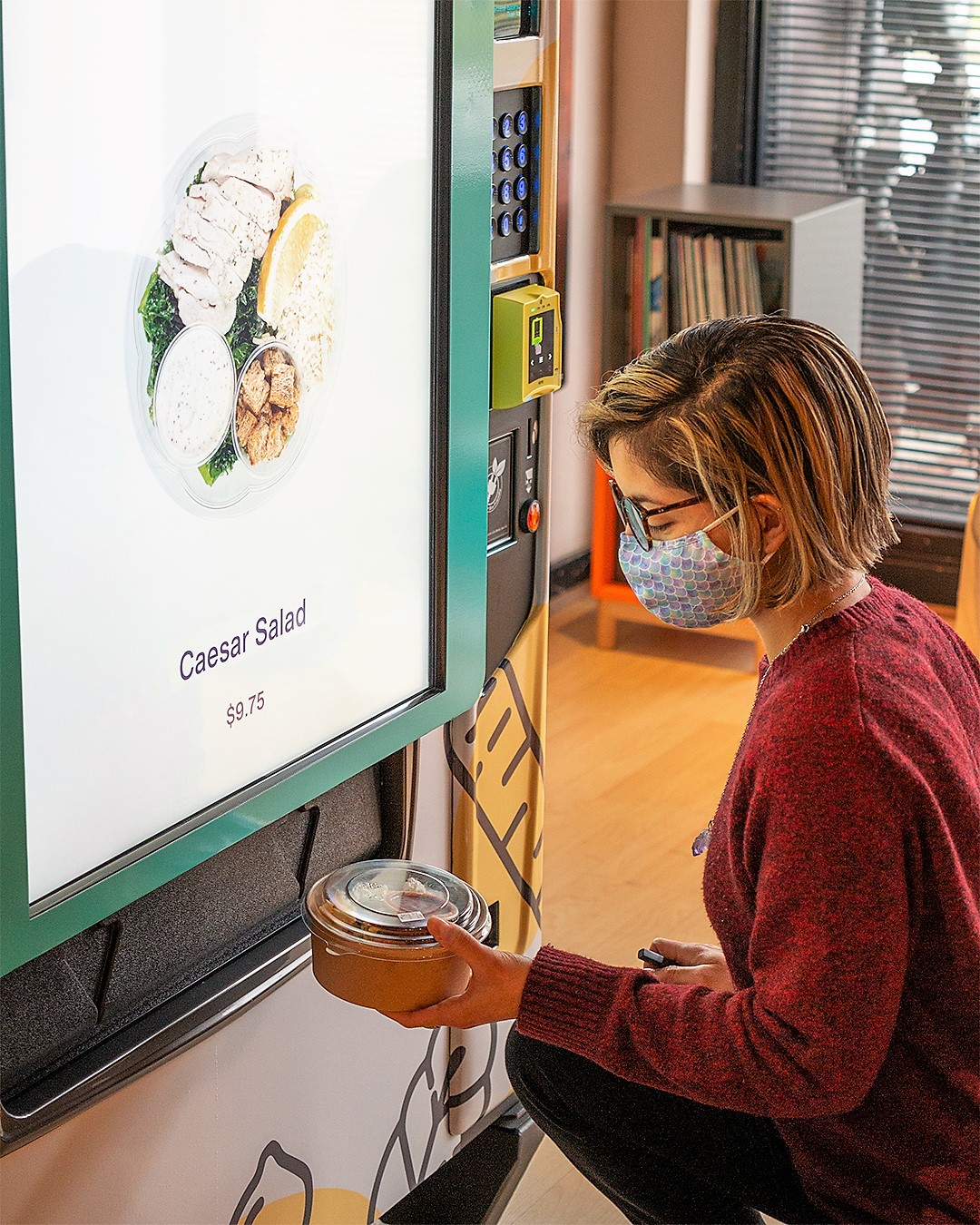 |
| A customer purchases a Caesar Salad. |
Rather than offer customers commissions on sales, Munro said Upmeals suggests they build profit into their retail pricing.
"Upmeals actually has a wholesale relationship with the organization, so we invoice the wholesale cost of the meal," he said. "Then the organization sets their own desired retail price."
"We wanted to provide a slightly different and disruptive way of doing business that added more value for the partner and more value for the employees and gave them more control and more flexibility," he said.
Munro said the products are "significantly cheaper" than what they would pay at a restaurant, catering or a meal delivery service. Wholesale prices are 7-10 Canadian dollars for an entree salad bowl compared to 13-15 Canadian dollars at a restaurant.
Some employers cover the cost of their employee meals or subsidize a portion of it.
Vending helps recover catering losses
Prior to COVID-19, Munro's catering operation employed 35 full-time staff plus 40 to 50 servicing employees. The vending operation allowed Munro to rehire all of his senior catering employees, although he declined to give numbers.
The Upmeals business fortunately grew at a rapid pace around the time the government required the catering business to close last March.
Munro found a receptive audience among catering accounts that could no longer be catered.
"Even amidst the pandemic, there was a need from offices to have a safe way to feed all of their employees," he said.
For an update on how the coronavirus pandemic has affected convenience services, click here.
Photos courtesy of Upmeals.
About Elliot Maras
Elliot Maras is the editor of Kiosk Marketplace and Vending Times. He brings three decades covering unattended retail and commercial foodservice.
 ChatGPT
ChatGPT Grok
Grok Perplexity
Perplexity Claude
Claude

